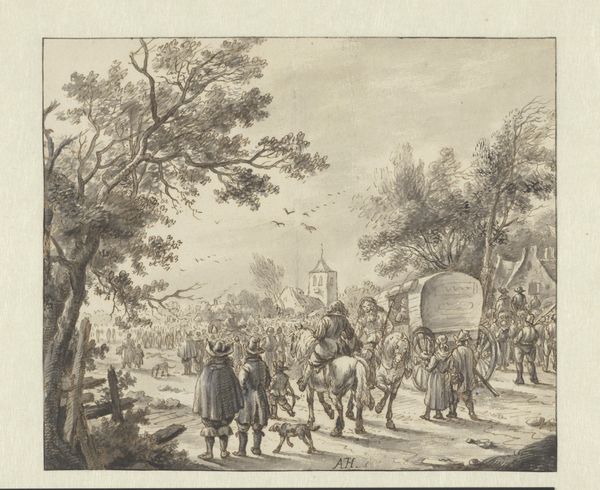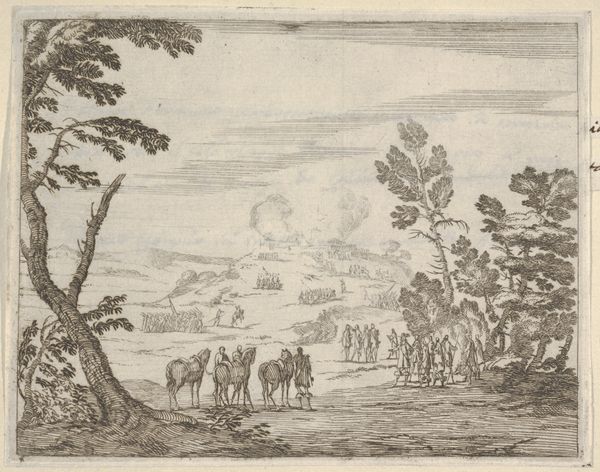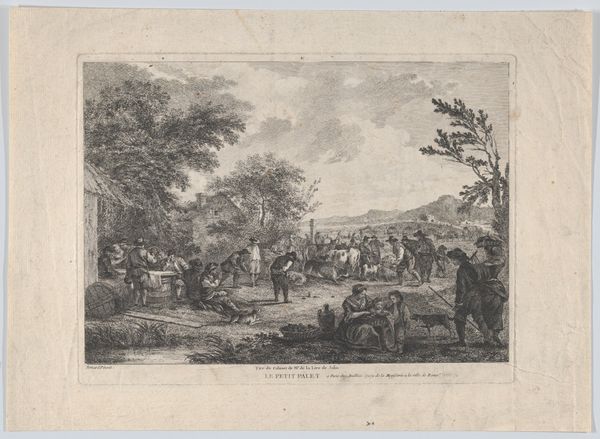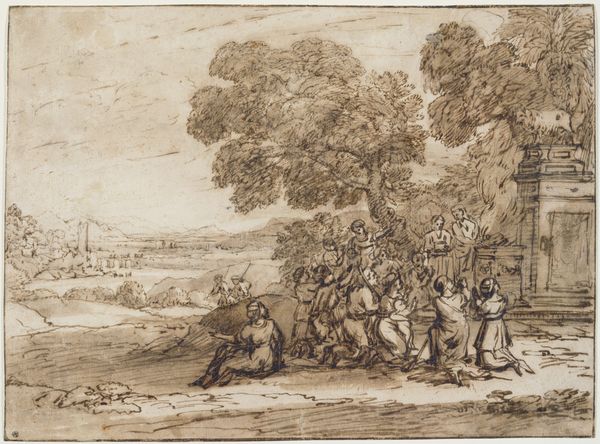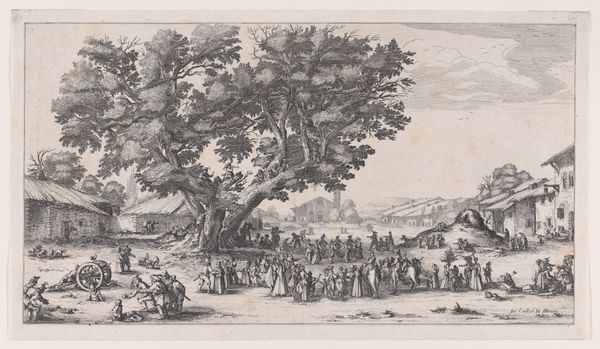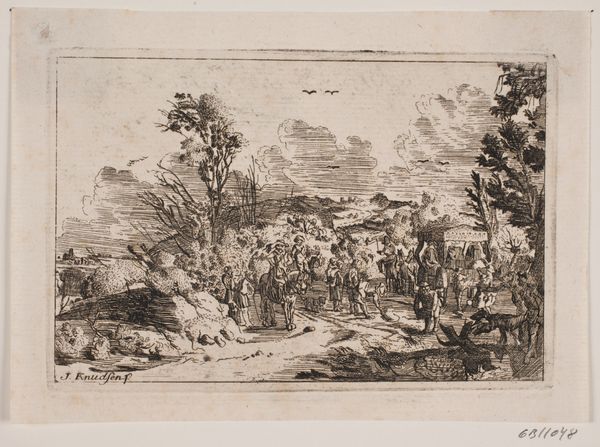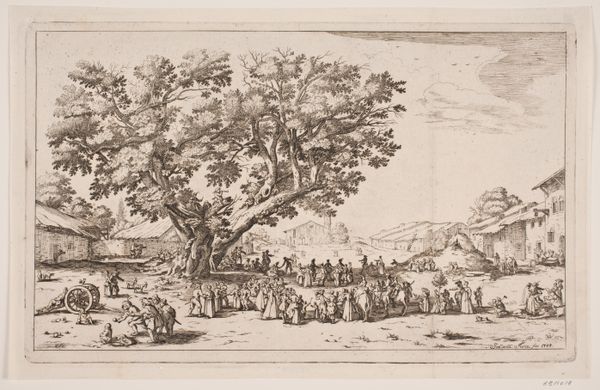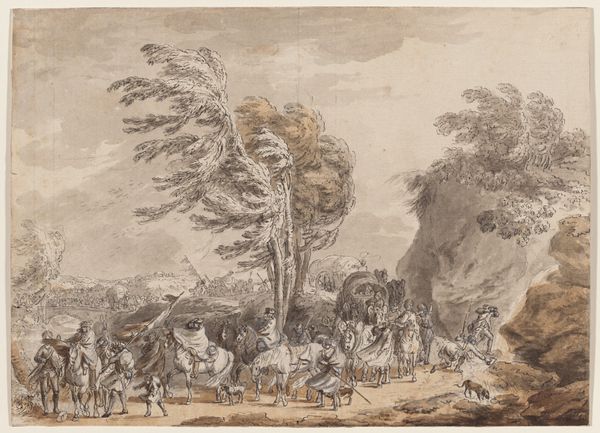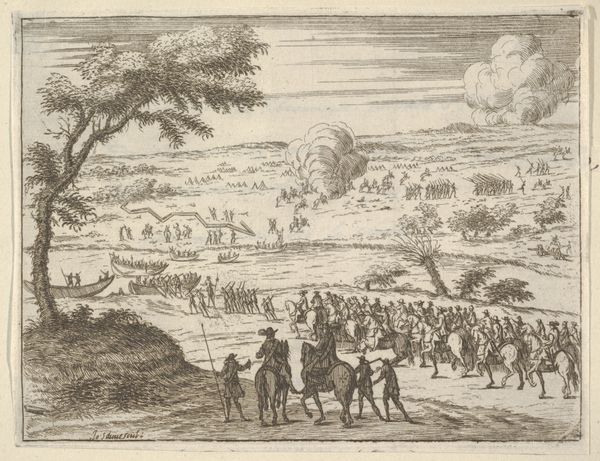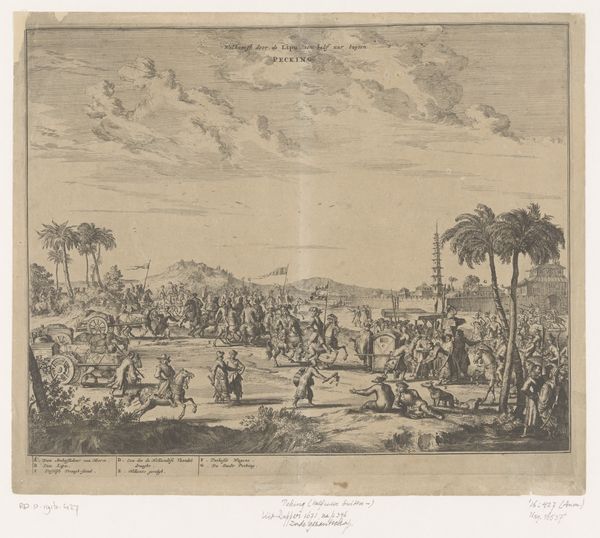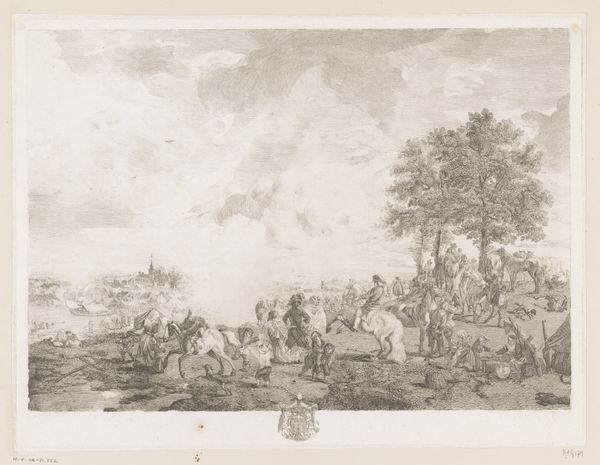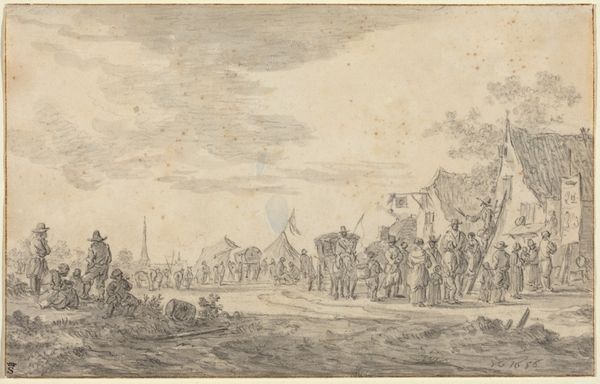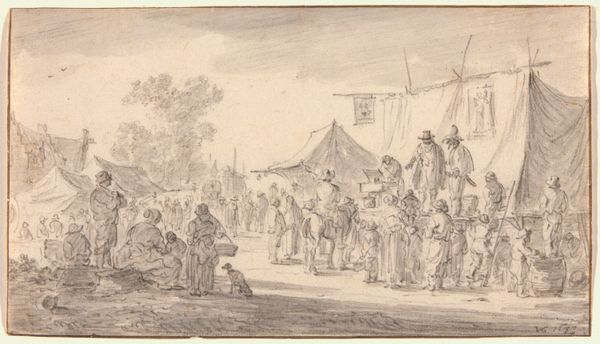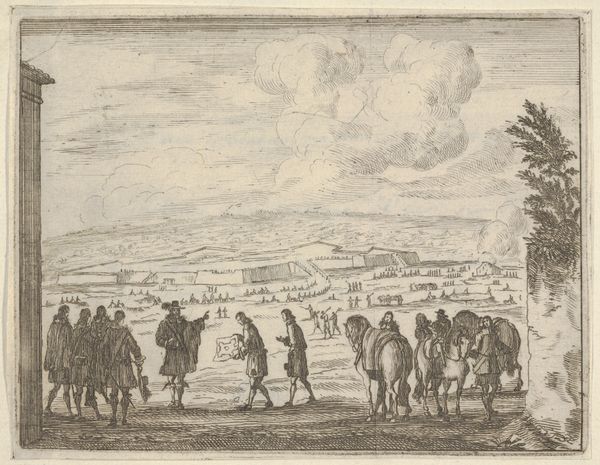
drawing, print, etching
#
drawing
#
neoclacissism
# print
#
etching
#
pencil sketch
#
landscape
#
figuration
#
15_18th-century
#
genre-painting
Dimensions: Sheet: 11 5/8 × 15 7/8 in. (29.6 × 40.3 cm) Plate: 10 3/16 × 13 13/16 in. (25.8 × 35.1 cm)
Copyright: Public Domain
Editor: So, here we have Jean Jacques de Boissieu's "Village Festival," an etching from 1773, currently residing at The Met. It's quite a detailed print, and the overall impression is one of ordered merriment. There's a definite sense of layering and depth to it, too. How do you interpret this work? Curator: The eye is drawn across the composition by contrasting tonal values. See how the distribution of light and shade creates rhythm? This creates a balanced but not perfectly symmetrical organisation of the picture plane, divided vertically by the framing trees. The artist carefully articulates a visual hierarchy using lines and details that draw you in to focal points, doesn’t he? Editor: Definitely, the placement of the figures seems very deliberate. How does the church figure into it, visually? Curator: The placement of the church, and the use of vertical lines created by the architecture, are interesting when seen in contrast to the curves of the landscape and the crowd’s disposition. Look closer at the composition of the overall scene, do you see how this play with linearity establishes balance in the print? How might those formal tensions underscore the meaning in relation to the work's time period? Editor: It seems Boissieu wants to say something about human figures, spatial organisation, and symbolic significance in an understated manner... the details give clues, even though the figures seem like almost anonymous members of the landscape. I will have to study other works by this artist. Thanks for your insight! Curator: My pleasure. These compositional components construct the essence of the artwork.
Comments
No comments
Be the first to comment and join the conversation on the ultimate creative platform.
